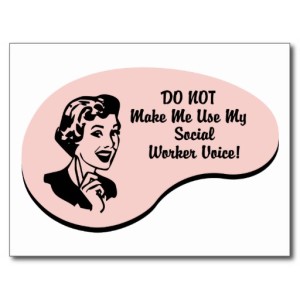We learn a lot through relationships and dating, whether about ourselves or what we look for in a partner. I have accumulated different ‘rules’, if you will, to hold true to with love and relationships that I have found super helpful over the years.
Take a peak at these tips, considerations, and things to keep in mind!
Do not hold back. Communicate- even when uneasy or tough. The best way to heal and understand is to get it all out there. To get it off your chest and get the closure you want/need. Don’t torture yourself with the ‘what if’s’ and the unknowns. Be bold, ask questions, and be honest with your feelings.
Don’t pretend the person you’re with is what you really want. Sometimes we settle, sometimes we allow the current relationship to continue even when we know it’s not all that we are looking for. This is a mistake that may last you a lifetime. Be honest with yourself if something is missing in your relationship and decide if it’s worth sticking around for, or worth exploring other options. You deserve a lifetime of happiness, and hurting someone in the process is tough. But sometimes that is the only option we have to ensure we are doing what is best for ourselves. Being selfish is hard, but when it includes our long term happiness we have to think selfishly sometimes.
You can’t convince people to love you. No one will love you bc you want them to; it has to move freely in both directions. Don’t waste your time on anything else.
Just because someone is head over heals in love with you does not mean they are ready. They can love you in ways that you’ve never felt love, but that does not mean they are ready to be with you. You cannot stick around for this. Whatever their reason, do not ever feel the need to motivate someone to meet you where you’re at. You should never have to convince someone to be ready and work towards love. There is someone else for you that is ready, and the love you find with them will be even more extraordinary than the last.
You can miss someone but still understand that you deserve better. I LOVE this statement, and wish my 19-year-old-self would have known this. You can differentiate between missing someone and wanting to be with someone; there is a difference and we can continue to move forward each day even when we miss someone. Do not let your brain consume you with thoughts of being with someone that does not deserve you. It’s normal to miss people who come and go into our lives, but there is a reason they are no longer present. Remember the good times, but keep on movin’.
Stop rushing. Not only are you looking for a life partner, but also finding a best friend. Take time to really get to know someone and do not focus on the title of a relationship all the time.
Also, the saying ‘you find someone when you least expect it‘ is so true! When we change our focus onto ourselves; our confidence, our own self worth, our identity…that is when relationships happen and that special someone finds us. You need to find yourself before rushing into finding another person to make you happy. Get to know yourself before trying to get to know someone else. S-L-O-W D-O-W-N.
Quit name calling and say sorry when you need to. Fights will be had, frustrations arise, disagreements happen. All of that is normal in relationships. But nothing good comes from name calling, swearing, or yelling. This only escalates the situation, and honestly it’s just disrespectful. Take a step back if you feel things getting too escalated. Otherwise all we are doing is hurting one another and not solving any of our problems. And if we do get to this point, take ownership and apologize. Meaningful apologies go a long ways, and it helps us learn humility in the process.
Stop trying to change people. What is it about your partner that you are trying to change? Is it a significant issue that will continue to affect your relationship? Or is it something you can overlook? News flash: We cannot change people. Do not waste your energy fighting this.
People naturally change within their relationships based on what they learn from their partner and how they grow together. However, there are certain parts of who we are that are unchangeable. Find out if it’s worth sticking around for or if the issue is too big for you to overlook. Sometimes we try to change people and it may work for a certain amount of time, but typically they go back to who they are. Quit fighting over it, stop trying to make someone something they are not, and decide if this relationship is worth your effort.
Quit putting their needs before your own. It’s a team effort. Quit bending over backwards to make things work. Are you putting in the same amount of effort as your partner, or are you a one man team? Are they texting/calling you and initiating dates? Are they making time in their life for you? It’s exhausting to put forth all the effort, and it isn’t fair. Find someone who wants to be a team with you.
Finding a partner is all about team work. Even if you are fighting with your partner the goal is the same, which is to choose each other. So even during rough times or arguments, remember that you’re on the same team and fighting for the same thing; to be together.
Love is a temporary madness. It erupts like an earthquake and then subsides. And when it subsides you have to make a decision. You have to work out whether your roots have become so entwined together that it is inconceivable that you should ever part. Because this is what love is. Love is not breathlessness, it is not excitement, it is not the promulgation of promises of eternal passion. That is just being “in love” which any of us can convince ourselves we are. ~
-keep shining





Recent Comments